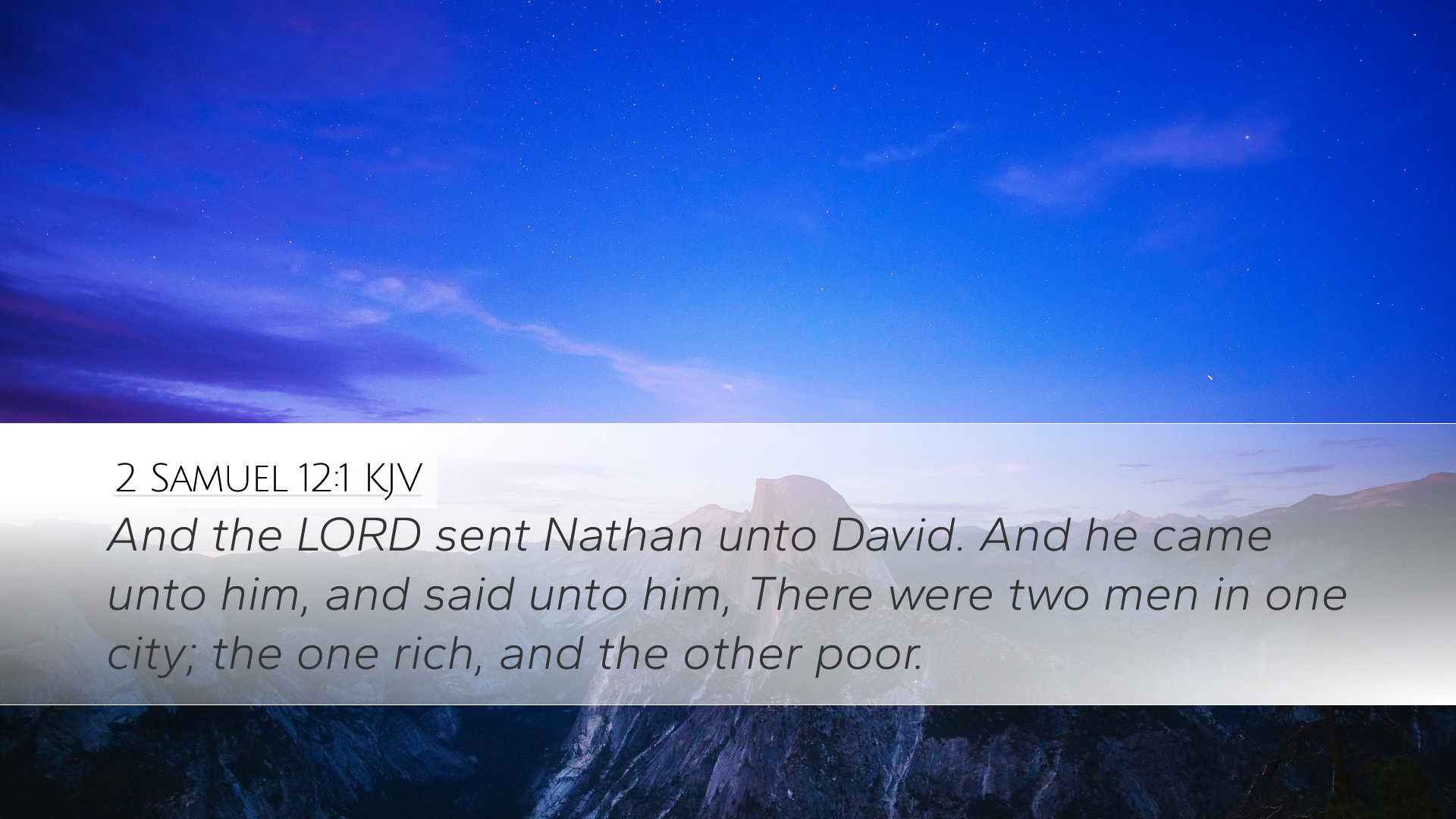Exegesis of 2 Samuel 12:1
In this verse, Nathan is sent by the Lord to confront David. The Lord’s choice of Nathan as a messenger highlights the importance of prophetic communication in Israel's history.
Commentary Insights
Public domain commentaries offer valuable insights into this critical scripture. Here is a synthesis from the works of Matthew Henry, Albert Barnes, and Adam Clarke.
Matthew Henry: The Nature of Divine Confrontation
Matthew Henry emphasizes that God’s message through Nathan was not merely a rebuke but an act of divine grace aimed at restoration. He interprets the Lord’s action as a demonstration of God’s commitment to His covenant with David, seeking to bring him back from his grievous path. Henry notes:
"This was to show that God had not forsaken him, though he had fallen into grievous sin."
He also understands Nathan's approach as carefully calculated, preferring a parabolic method to engage David emotionally and intellectually before revealing the harsh truth of his actions.
Albert Barnes: The Role of the Prophet
Albert Barnes explores Nathan's role, noting the significance of the prophetic office. He remarks:
"Nathan's mission illustrates the essential duty of the prophet: to declare God’s truth regardless of the potential consequences."
Barnes draws attention to the courage Nathan displayed in speaking to the king, illustrating the weighty responsibility of conveying God’s messages, especially when addressing powerful figures. This moment exemplifies the prophetic call to accountability in spiritual leadership.
Adam Clarke: The Depth of Sin and the Need for Repentance
Adam Clarke delves into the moral and spiritual implications of David’s sin. He interprets Nathan’s parable, which follows in the subsequent verses, as a masterful way to elicit David’s own judgment against himself:
"By presenting a story of one man’s slight against another, Nathan exposes the enormity of David’s actions against Uriah, invoking a sense of justice within the king."
Clarke urges readers to recognize that God’s confrontation was designed not only to demand justice but to prompt genuine repentance, reflecting God's desire for restoration rather than mere punishment.
Practical Applications
For pastors, students, theologians, and scholars, the lessons drawn from this passage encourage:
- Embracing Prophetic Voices: Encouraging congregations to heed voices of accountability and wisdom in their spiritual walks.
- Promoting Repentance: Teaching the necessity and power of repentance, reflecting the heart of God in seeking restoration for His people.
- Understanding Leadership Responsibilities: A recognition of the weighty responsibility that comes with leadership and the need to maintain integrity before God.
- Engaging with the Text: An encouragement to dive deeper into the narratives of scripture, understanding their implications for contemporary faith practice.
Conclusion
2 Samuel 12:1 serves as a vital reminder of God's grace and justice, communicated through the prophetic witness of Nathan. This rich tapestry of confrontation and grace invites readers to reflect on their own lives in light of divine accountability and the unyielding love of God, who seeks to bring His people back to Him.


